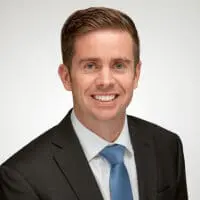Publication
Temporary Emergency Licensure Changes for Physicians
By Vinnie Lichvar
In light of the increasing demand for physicians essential to combat the ongoing COVID-19 pandemic, Centers for Medicare & Medicaid Services (CMS) has temporarily waived Medicare and Medicaid requirements that physicians be licensed in the state where they provide services. Ordinarily, physicians enrolled in a Medicare program, or practicing for an entity that is enrolled, must be licensed in each state in which they intend to practice. On March 30, CMS issued a guidance stating that physicians do not have to be licensed in each state they practice, provided they meet the following criteria.1 In order for this waiver to apply, physicians must:
1) Be enrolled in a Medicare program;
2) Possess a valid license to practice in the state which relates to their Medicare enrollment;
3) Be furnishing services, in person or via telehealth, in a state in which the emergency is occurring in order to contribute to relief efforts in their professional capacity, and;
4) Not be affirmatively excluded from practice in the state or any other state that is part of the 1135 emergency area.
CMS noted, however, this waiver does not waive state or local licensure requirements or any requirement specified by the state or a local government as a condition for waiving its licensure requirements.
The Arizona Medical Board (“Board”) responded shortly after CMS’ temporary policy changes by issuing its own guidance.2 The Board now permits physicians that are licensed out-of-state to apply for and receive a temporary license in the State of Arizona. To receive a temporary license, out-of-state physicians must submit an “emergency temporary licensure application” available on the Board’s website.
The Board is also permitting physicians with inactive licenses to receive temporary activation if they have been inactive for four years or less and attest that they have the physical and mental capability to safely practice medicine. In addition, the Board is permitting retired physicians who no longer hold any state license to apply for a temporary emergency license if the physician has been out of practice for four years or less and also attests that they have the physical and mental capability to safely practice medicine. Finally, the Board is permitting medical school graduates of an approved school of medicine, who have completed 12 months of post-graduate training within the last six months or during the State of Emergency, to apply for and receive a temporary emergency medical license.
In light of these temporary modifications to licensure requirements at both the federal and state level, physicians may want to continue to track applicable changes for compliance with all licensure requirements.
Footnotes
-
https://www.cms.gov/files/document/covid-19-physicians-and-practitioners.pdf
-
https://www.azmd.gov/MinutesUploads/Press/MD_202004131454_4c0b5a80e1df415da9be4178c2d415c8.pdf
About Snell & Wilmer
Founded in 1938, Snell & Wilmer is a full-service business law firm with more than 500 attorneys practicing in 17 locations throughout the United States and in Mexico, including Los Angeles, Orange County, Palo Alto and San Diego, California; Phoenix and Tucson, Arizona; Denver, Colorado; Washington, D.C.; Boise, Idaho; Las Vegas and Reno, Nevada; Albuquerque, New Mexico; Portland, Oregon; Dallas, Texas; Salt Lake City, Utah; Seattle, Washington; and Los Cabos, Mexico. The firm represents clients ranging from large, publicly traded corporations to small businesses, individuals and entrepreneurs. For more information, visit swlaw.com.

